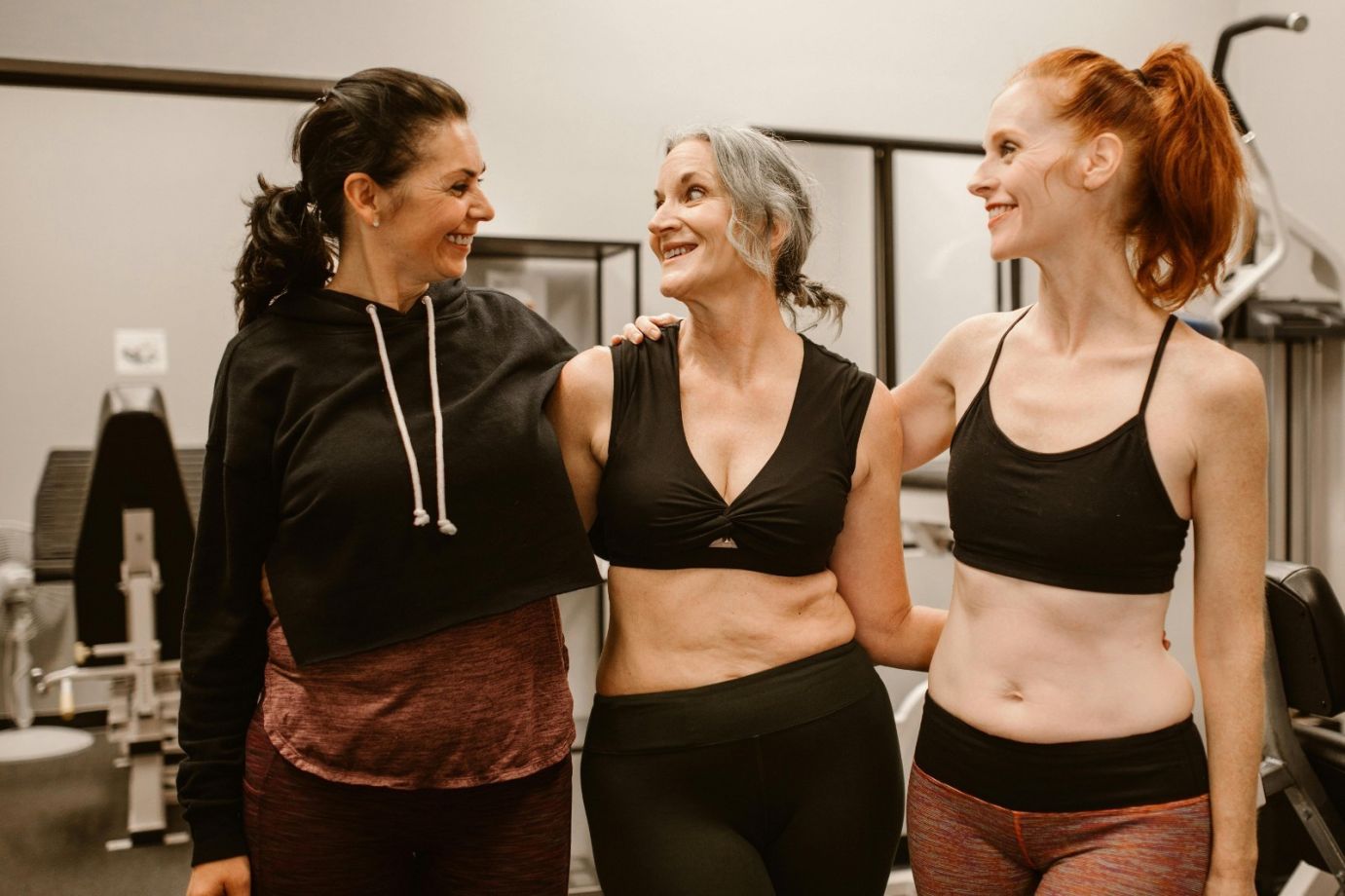Navigating Menopause
Strategies for a Smoother Transition
Introduction
Menopause is a natural and inevitable phase in every woman’s life. While it marks an important biological milestone, it can also bring physical and emotional challenges. The transitional period leading up to menopause, known as perimenopause, is characterized by significant hormonal fluctuations, primarily a steady decline in progesterone and unpredictable shifts in oestrogen levels.
These hormonal changes affect more than just the reproductive system. As oestrogen levels drop, the brain recalibrates, influencing mood, memory, sleep, and stress responses. Other systems such as the cardiovascular system, bones, metabolism, and body composition also undergo change during this time.
The good news? With the right support including targeted nutrition, regular movement, and lifestyle adjustments you can navigate this transition with greater ease, resilience, and confidence. Menopause can be a powerful opportunity to reconnect with your health and lay a strong foundation for long-term wellbeing.
1. Nourish to Thrive: Eating for Energy and Balance
What you eat during this stage plays a vital role in how you feel physically, mentally, and emotionally. Prioritising nutrient-dense, balanced meals can help you feel more energised and grounded.
- Protein: With declining oestrogen comes a natural loss of muscle mass. Prioritise high-quality protein sources like lean meats, eggs, legumes, tofu, tempeh, seeds, and protein-rich grains such as quinoa to support muscle health and energy.
- Collagen: Collagen production diminishes with age, impacting skin, joints, and connective tissue. Boost your intake with bone broth, hydrolysed collagen peptide supplements (marine or grass-fed), and vitamin C-rich foods to support natural synthesis.
- Balanced meals: Combine protein, healthy fats, and complex carbohydrates at each meal to promote hormone balance, stabilise blood sugar, and sustain energy.
2. Bone Health: Strength from the Inside Out
As oestrogen declines, bone mineral density naturally decreases, raising the risk of conditions like osteopenia and osteoporosis. Taking steps to support your bones now can have lasting benefits.
- Calcium: Aim for around 800 -1300 mg per day through food. Good sources include sardines, salmon with bones, leafy greens (such as kale and bok choy), calcium-set tofu, nuts, seeds, dairy products, and fortified plant milks.
- Supporting nutrients: Nutrients like magnesium, boron, and vitamin K2 work alongside calcium and can be found in seeds, nuts, legumes, leafy greens, and fermented foods.
- Vitamin D: Practice safe sun exposure and/or supplementation, if necessary (recommended to check blood levels first).
- Weight-bearing exercise: Activities like walking, resistance training, Pilates, and yoga strengthen bones and improve balance.
3. Brain Health: Staying Sharp and Steady
Oestrogen plays a key role in cognitive function. Its decline can affect mood, memory, and concentration. Supporting brain health can help maintain clarity and emotional balance.
- Omega-3s: Include flaxseeds, chia seeds, walnuts, and oily fish to support brain function.
- Movement: Regular physical activity improves circulation and supports brain plasticity.
- Sleep: Prioritise restorative sleep to enhance memory, focus, and resilience.
- Herbal support: Consider cognitive-supportive herbs such as bacopa, ginseng, ginkgo biloba, and lion’s mane mushroom (consult a healthcare provider before use).
4. Gut Health: The Core of Wellbeing
The gut plays a central role in hormone regulation, immune function, and mood. A diverse, plant-rich diet supports a healthy microbiome and may ease menopausal symptoms.
- Diversity matters: Aim to include 30 or more different plant-based foods per week the "GUT30" approach.
- Polyphenols: Found in colourful vegetables, berries, green tea, olives, and dark chocolate, polyphenols feed beneficial gut bacteria.
- Fibre: Supports digestion, detoxification, and blood sugar balance.
5. Lifestyle: Building Daily Rhythms That Support You
Your daily routines can significantly shape your menopausal experience. Small, consistent habits create a strong foundation for resilience and wellbeing.
- Joyful movement: Choose activities that feel good walking, dancing, strength training, or gardening.
- Stress management: Incorporate calming practices like deep breathing, journaling, meditation, and time in nature.
- Sleep hygiene: Create a calming bedtime routine, reduce screen time before bed, and prioritise restful sleep.
Final Thoughts
Menopause is a transition, not a loss. It’s an opportunity to pause, reflect, and make your wellbeing a priority. By supporting your body and mind through thoughtful nutrition, movement, and lifestyle choices, you can approach this new chapter with confidence, clarity, and strength.






